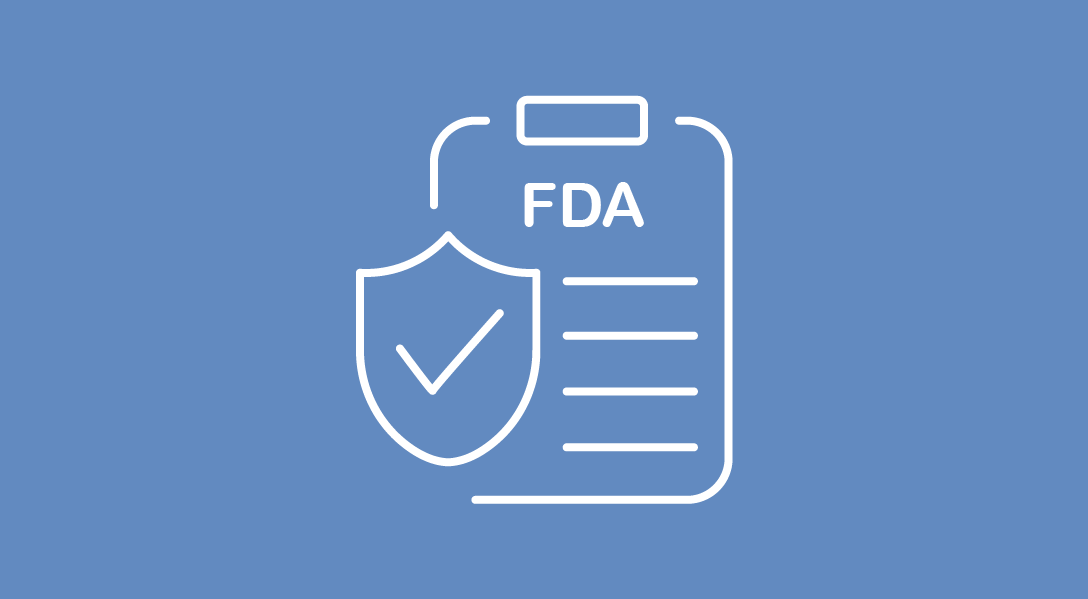Oncology Drugs That Received FDA Approval in April 2024
Throughout April, the FDA approved drugs for the treatment of diseases including solid tumors, lung cancer, multiple myeloma, bladder cancer, and low-grade glioma.
Oncology Drugs That Received FDA Approval in April 2024

Several oncology therapies received FDA approval throughout the month of April for diseases including HER2-positive solid tumors, early-stage non-small cell lung cancer (NSCLC), multiple myeloma, and other cancer types.
Here is a select list of oncology drugs that were approved this past month.
FDA Grants Accelerated Approval to Fam-Trastuzumab Deruxtecan-Nxki in HER2+ Solid Tumors
The FDA has granted accelerated approval to fam-trastuzumab deruxtecan-nxki (Enhertu) for adults with unresectable or metastatic HER2-positive solid tumors who have exhausted prior treatments.1 The drug's efficacy was assessed in three trials, demonstrating objective response rates ranging from 46.9% to 52.9%, with a median duration of response ranging from 5.5 to 19.4 months.
Common adverse events included nausea, vomiting, constipation, alopecia, upper respiratory tract infection, stomatitis, fatigue, and decreased blood cell counts. The recommended dosage is 5.4 mg/kg via intravenous infusion every 3 weeks until disease progression or intolerable side effects. Continued approval hinges on confirming clinical benefit in further trials.
FDA Approves First ALK Inhibitor for Adjuvant Therapy in Early-Stage NSCLC
The FDA has approved alectinib (Alecensa) as adjuvant therapy for anaplastic lymphoma kinase (ALK)-positive NSCLC after tumor resection, a first for early-stage ALK-positive NSCLC.2 Data from the ALINA study (NCT03456076) showed a 76% reduction in disease recurrence risk compared to chemotherapy. Notably, patients experienced improved central nervous system-disease-free survival.
Safety profiles were consistent with previous trials, with common adverse reactions including constipation, hepatotoxicity, myalgia, rash, fatigue, COVID-19, and cough. Alectinib is recommended at a 600-mg oral dose twice daily with food for 2 years or until unacceptable toxicity or disease recurrence.
Cilta-Cel Approved By FDA for Pretreated Relapsed/Refractory Multiple Myeloma
The FDA has granted approval to ciltacavtagene autoleucel (cilta-cel), a CAR T-cell therapy, for patients with relapsed or refractory multiple myeloma who have undergone prior treatment.3 Cilta-cel demonstrated promising results in the CARTITUDE-4 trial (NCT04181827), with a significant proportion of patients achieving deep and durable responses.
Common adverse events included cytokine release syndrome and neurotoxicity, managed with appropriate monitoring and supportive care. The toxicity profile comes with a boxed warning for CRS, ICANS, Parkinsonism, and Guillain-Barre syndrome and their affiliated complications such as hemophagocytic lymphohistiocytosis/macrophage activation syndrome, cytopenias that are prolonged and recurrent, and secondary malignancies such as acute myeloid leukemia, myelodysplastic syndrome, and T-cell malignancies.
FDA Approves IL-15 Receptor Agonist for BCG-Unresponsive NMIBC
The FDA has approved a novel interleukin-15 (IL-15) receptor agonist, enfortumab vedotin-ejfv (Anktiva), for patients with Bacillus Calmette-Guérin (BCG)-unresponsive non-muscle invasive bladder cancer (NMIBC).4 The decision is based on results from the QUILT-3.032 trial (NCT0302285), where enfortumab vedotin-ejfv demonstrated clinically meaningful responses in patients who had not responded to BCG therapy.
The rate of CR in this trial was 62% (95% CI, 51%-73%). Of note, 58% of patients with a CR had a DOR of at least 12 months, and 40% of patients had a DOR of at least 24 months. The most common adverse reactions, occurring in at least 15% of patients, included dysuria, increased creatinine levels, hematuria, micturition urgency, urinary frequency, increased potassium levels, urinary tract infection, chills, musculoskeletal pain, and pyrexia.
Tovorafenib Gets Accelerated Approval for Pediatric Low-Grade Glioma
The FDA has granted accelerated approval to tovorafenib (Ojemda) for pediatric patients with relapsed or refractory BRAF-altered low-grade glioma.5 This approval was based on results from the phase 2 FIREFLY-1 trial, which demonstrated durable responses in pediatric patients with refractory or progressive low-grade glioma.
Regarding safety, the most common treatment-related adverse events (TRAEs) were hair color changes (76%), increased creatine phosphokinase (56%), and anemia (49%). TRAEs of grade 3 or higher were reported in 42% of patients, and 9 patients (7%) discontinued study treatment due to TRAEs.
References
- FDA grants accelerated approval to fam-trastuzumab deruxtecan-nxki for unresectable or metastatic HER2-positive solid tumors. News release. Food and Drug Administration. April 5, 2024. Accessed April 5, 2024. https://www.fda.gov/drugs/resources-information-approved-drugs/fda-grants-accelerated-approval-fam-trastuzumab-deruxtecan-nxki-unresectable-or-metastatic-her2
- FDA Approves Genentech's Alecensa as First Adjuvant Treatment for People With ALK-Positive Early-Stage Lung Cancer. News release. Genentech. April 18, 2024. Accessed April 18, 2024. https://www.gene.com/media/press-releases/15023/2024-04-18/fda-approves-genentechs-alecensa-as-firs
- Carvykti is the first and only BCMA-targeted treatment approved by the US FDA for patients with relapsed or refractory multiple myeloma who have received at least one prior line of therapy. News release. Johnson & Johnson. April 5, 2024. Accessed April 8, 2024. https://www.jnj.com/media-center/press-releases/carvykti-is-the-first-and-only-bcma-targeted-treatment-approved-by-the-u-s-fda-for-patients-with-relapsed-or-refractory-multiple-myeloma-who-have-received-at-least-one-prior-line-of-therapy
- FDA approves nogapendekin alfa inbakicept-pmln for BCG-unresponsive non-muscle invasive bladder cancer. News release. FDA. April 22, 2024. Accessed April 22, 2024. https://www.fda.gov/drugs/resources-information-approved-drugs/fda-approves-nogapendekin-alfa-inbakicept-pmln-bcg-unresponsive-non-muscle-invasive-bladder-cancer
- FDA grants accelerated approval to tovorafenib for patients with relapsed or refractory BRAF-altered pediatric low-grade glioma. US FDA. April 23, 2024. Accessed April 23, 2024. https://tinyurl.com/4ah2mbu5


